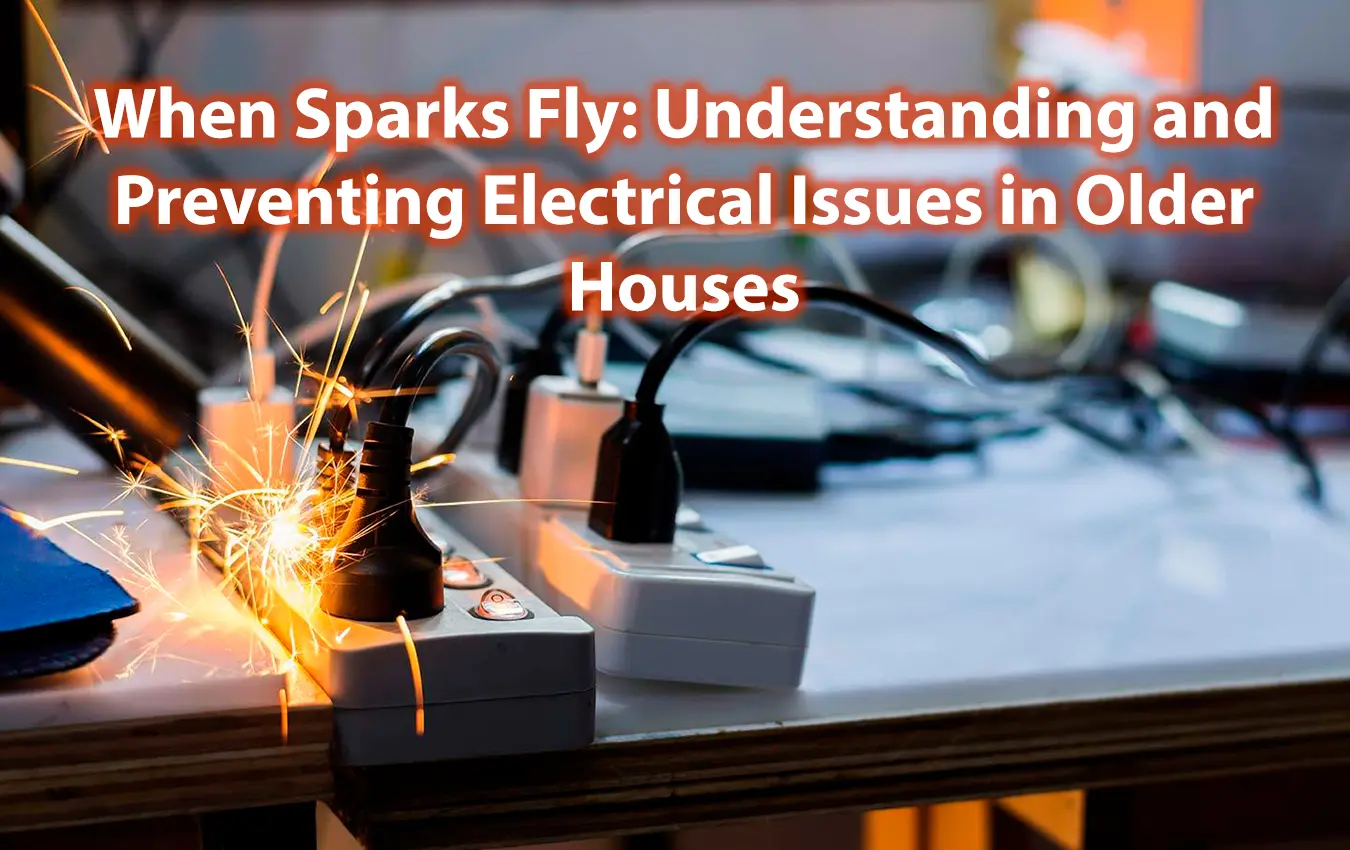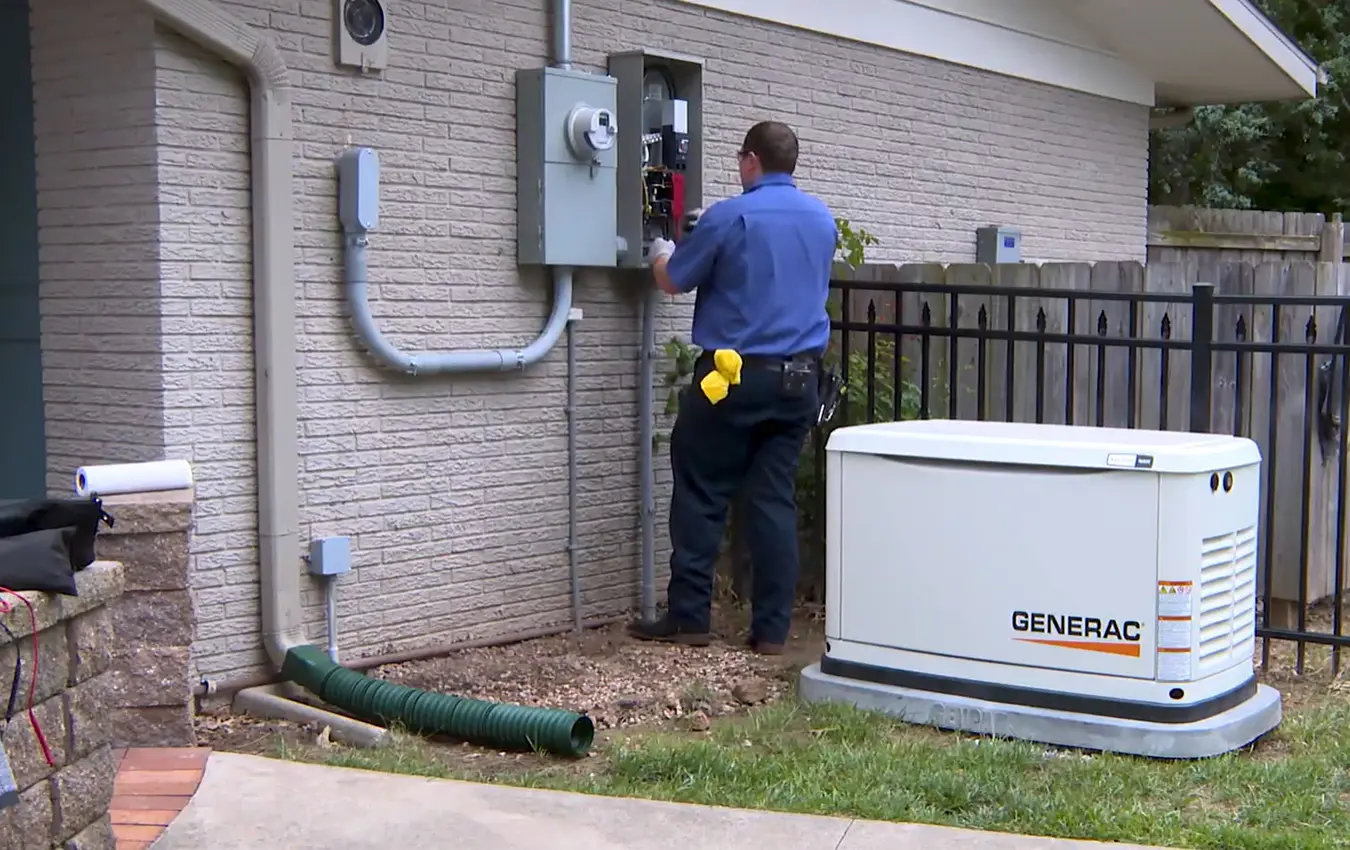Are you living in an older house and worried about electrical issues? If so, you’re not alone. Many older homes have electrical systems that are outdated, unsafe, or inefficient. These can lead to problems such as fire hazards, electric shocks, or damage to appliances and electronics.
In this article, we will explore the common electrical issues in older homes, the risks and dangers they pose, and how to assess and prevent them. We will also discuss the pros and cons of DIY electrical repairs versus hiring a professional electrician.
By the end of this article, you will have a better understanding of how to deal with electrical issues in older houses and how to keep your home safe and functional.
Common Electrical Issues in Older Homes
When you’re living in an older house, it’s essential to be aware of potential electrical problems. Here’s a look at some of the most common issues you might encounter.
Outdated Wiring Systems
One of the most prevalent electrical issues in older homes is outdated wiring systems. Many of these houses were built with knob and tube or aluminum wiring, which are not up to modern safety standards. These types of wiring can overheat easily and pose a fire risk.
Overloaded Circuits
As our reliance on electronic devices has grown, so has the demand for electricity. This increased load can often lead to overloaded circuits in older houses. Signs of this problem include frequently tripped circuit breakers or blown fuses.
Faulty Switches and Outlets
Another common issue in older homes is faulty switches and outlets. Over time, these components can wear out, leading to intermittent power or even sparking. If you’re experiencing these problems, it’s likely time for a replacement.
Damaged or Deteriorating Insulation
Insulation around electrical wires can damage or deteriorate over time, especially in older homes. This exposes the wires and increases the risk of electrical shocks and fires.
Do you need the help of a professional electrician to troubleshoot electrical issues? Premier Electrical Services will quickly and efficiently resolve your problems! Call us at 954-900-1696 now, or leave us a message online!
Understanding the Risks and Dangers of Electrical Issues in Older Houses
An older home is full of character but can also be riddled with potential risks and dangers due to electrical issues. Here are some common threats to be aware of.
Potential Fire Hazards
One of the significant dangers in older homes is the risk of fire hazards. Old wiring systems, overloaded circuits, or worn-out insulation can lead to overheating and sparking, which may result in fires. These fires can cause extensive property damage and seriously threaten the occupants’ safety.
Electrical Shock Risks
Another critical issue associated with older houses is the risk of electric shocks. Damaged outlets, faulty switches, or exposed wires due to deteriorated insulation can all lead to severe shocks or even electrocution. It’s crucial to address these problems promptly by hiring a professional electrician to safeguard your family and yourself.
Damage to Appliances and Electronics
Lastly, electrical issues in older homes can cause damage to your appliances and electronics. Unexpected power surges from faulty wiring or overloaded circuits can harm these devices, leading to expensive repairs or replacements.
Assessing the Electrical System in an Older Home
When it comes to older homes, understanding the state of the electrical system is crucial for safety and functionality. Here’s a guide on how to assess the electrical system in an older home.
Hiring a Professional Electrician for Inspection
The first step in assessing the electrical system of an older home is to hire a professional electrician. They have the necessary knowledge and tools to thoroughly inspect your home’s electrical system. This includes checking the wiring, circuit breakers, outlets, and switches.
Identifying Warning Signs and Symptoms of Electrical Issues
Knowing the warning signs can help you identify potential electrical issues early. These may include flickering lights, frequently tripped circuit breakers, dead outlets, or warm switches. If you notice any of these symptoms, it’s time to call a professional for further investigation.
Testing and Evaluating the Overall Safety of the System
An essential part of assessing the electrical system in an older home involves testing and evaluating its overall safety. This includes checking if the system is properly grounded, ensuring there are sufficient outlets to prevent overloading, and verifying the integrity of the insulation around the wires.
Preventative Measures for Electrical Issues in Older Houses
Prevention is always better than cure, especially regarding electrical issues in older homes. Here’s a guide on the preventative measures you can take to avoid potential problems.
Upgrading Outdated Wiring and Electrical Panels
One of the first steps in preventing electrical issues in older homes is upgrading outdated wiring and electrical panels. Old wiring may not be equipped to handle the electrical load of modern appliances, leading to overheating and potential fires. Updating the electrical panel can also improve the safety and efficiency of your home’s electrical system.
Properly Grounding the Electrical System
Proper grounding is another crucial preventative measure. It helps to prevent electrical shocks by providing a path for electric current to follow if there’s a fault. By grounding your electrical system, you can protect your appliances and yourself from potential harm.
Using Surge Protectors and Circuit Breakers
Surge protectors and circuit breakers are essential tools in protecting your home from electrical issues. Surge protectors help shield your appliances and electronics from damaging power surges, while circuit breakers prevent overloading by interrupting the electric flow when it exceeds a safe level.
Regular Maintenance and Inspections
Lastly, regular maintenance and inspections should be part of your preventative strategy. Having a professional electrician inspect your home’s electrical system can help identify and address issues before they become serious problems.
DIY Electrical Repairs vs. Hiring a Professional
When electrical issues arise in older homes, homeowners often face the decision of whether to tackle the problem themselves or hire a professional. Let’s explore the pros and cons of both options.
Advantages and Disadvantages of DIY Repairs
DIY electrical repairs can seem appealing due to the potential cost savings. By doing the work yourself, you don’t have to pay for labor. Additionally, learning about your home’s electrical system can be rewarding, providing you with skills that can be useful in the future.
However, there are significant disadvantages to consider. Electrical work can be complex and dangerous if not handled correctly. Mistakes can lead to further damage, costly repairs, or even serious safety risks like electrical shocks or fires. Furthermore, without the proper knowledge and tools, what seems like a minor repair can quickly become a major project.
Reasons to Hire a Professional Electrician
Hiring a professional electrician offers several advantages. They possess the necessary training and experience to handle complex electrical problems. They can also identify potential issues that may not be apparent to the untrained eye, preventing future problems.
Additionally, professional electricians are familiar with local building codes and can ensure your electrical system is compliant, which is crucial if you plan to sell your home in the future.
While hiring a professional may cost more upfront, it can save money in the long run by avoiding further damage and ensuring the job is done correctly the first time.
Conclusion
We hope you enjoyed this article and learned something new about electrical issues in older homes. Here are the key takeaways:
• Older homes often have outdated wiring systems, overloaded circuits, faulty switches and outlets, and damaged or deteriorating insulation. These can cause problems such as fire hazards, electric shocks, or damage to appliances and electronics.
• To assess the electrical system in an older home, you should hire a professional electrician for inspection, identify warning signs and symptoms of electrical issues, and test and evaluate the overall safety of the system.
• To prevent electrical issues in older homes, you should upgrade outdated wiring and electrical panels, properly ground the electrical system, use surge protectors and circuit breakers, and perform regular maintenance and inspections.
• When it comes to electrical repairs, you have the option of doing it yourself or hiring a professional. DIY repairs can save money and provide learning opportunities, but they can also be risky and complicated. Hiring a professional can ensure quality and safety, but it can also be more expensive and time-consuming.
If you’re looking for a reliable and experienced electrician to help you with your electrical issues in older homes, look no further than Premier Electrical Services. Whether you need an inspection, an upgrade, or a repair, we can handle it all. Contact us today and get a free quote for your electrical needs. Dial: 954-900-1696.
Check out the latest news:
- 10 Electrical Hazards of DIY Generator Installation
- Transform Your Living Space: The Benefits of Home Theater Systems
- How to Choose the Right Lighting Fixtures for Your Home or Business
- Don’t Be Left in the Dark: Why Homeowners Should Consider Premier Electrical Services for Backup Generator Installation
- Residential Electrical Wiring: Why You Need a Professional Electrician






